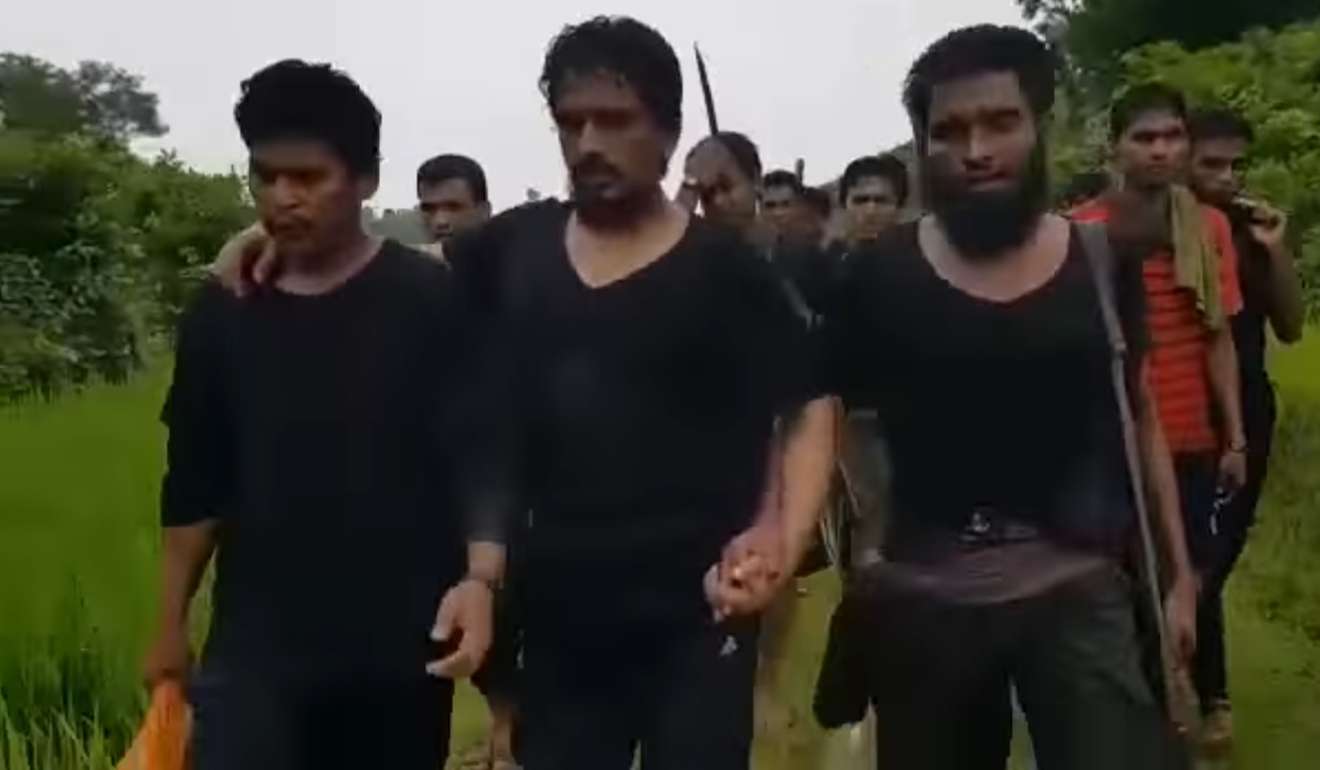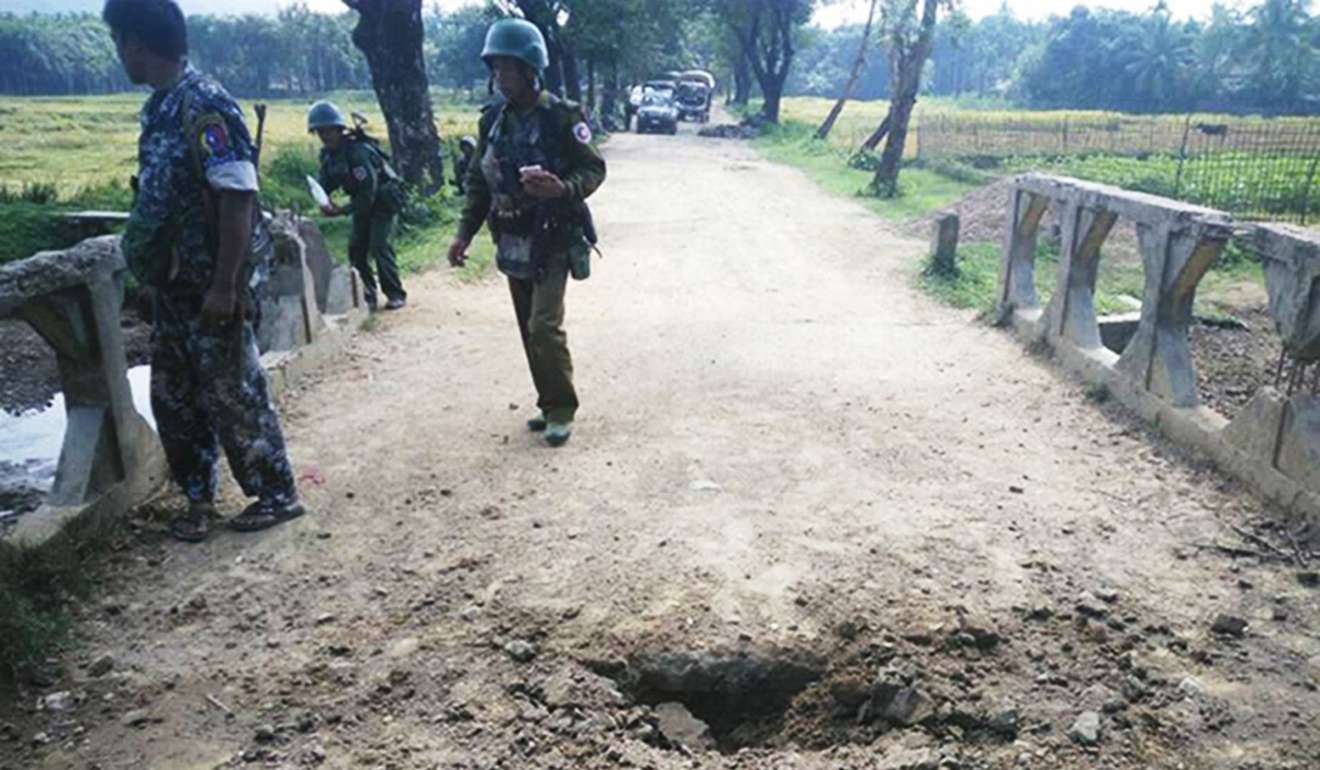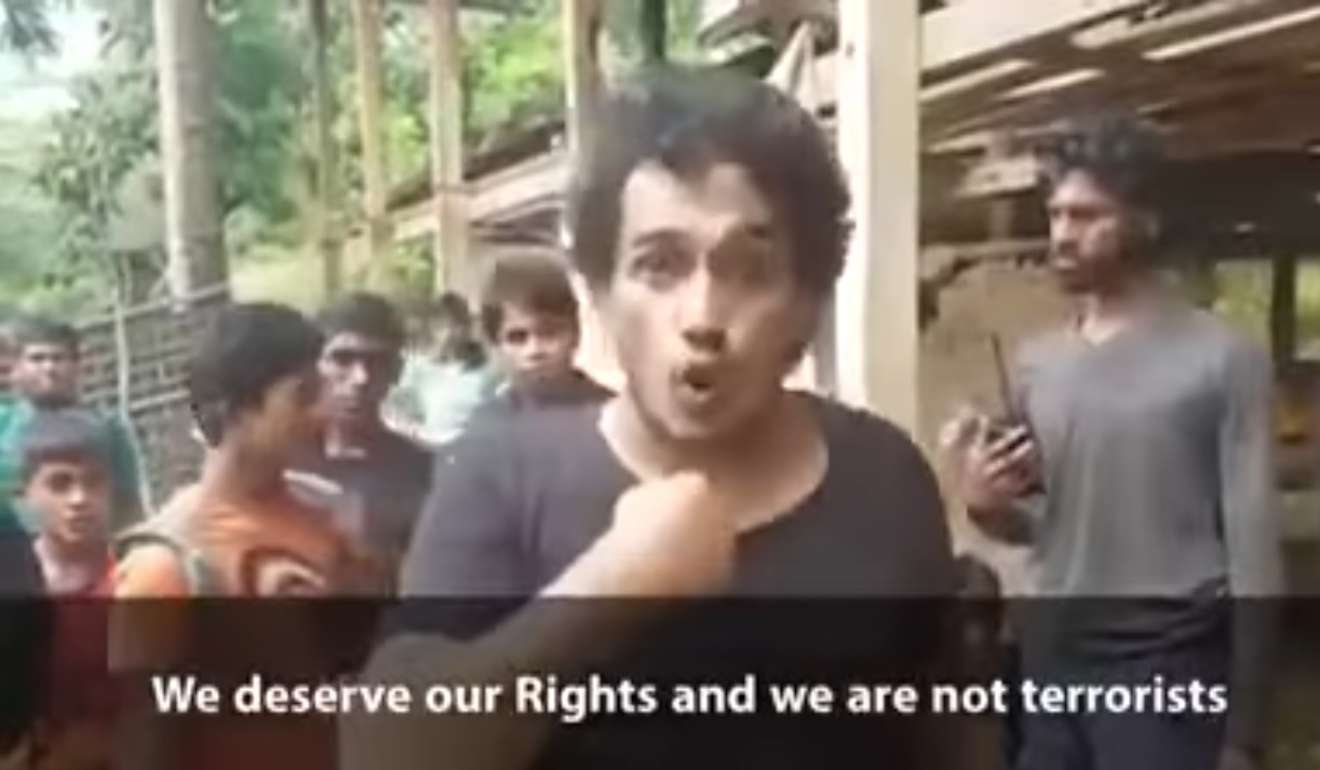
Myanmar’s Rohingya Muslim militants deny terrorist links

An armed militant group fighting Myanmar’s government on behalf of the country’s Rohingya Muslim minority has issued a statement asserting its right to self defence and denying links to any terrorist groups.
The statement, dated March 29 but released on Tuesday through overseas sympathisers, is the first public announcement issued in the name of the Arakan Rohingya Salvation Army, which previously called itself the Faith Movement, or Harakah al-Yaqin. Analysts including the Brussels-based International Crisis Group say it has been carrying out armed resistance.
The statement says the group “came forward to defend, salvage and protect [the] Rohingya community in Arakan with our best capacities as we have the legitimate right under international law to defend ourselves in line with the principle of self defence”.

Arakan is another term for Rakhine, the western state of Myanmar where most of the country’s 1 million Rohingya live.
Rohingya Muslims face severe discrimination in Buddhist-majority Myanmar and were the targets of violence in 2012 that killed hundreds and drove about 140,000 people – predominantly Rohingya – from their homes to refugee camps, where most remain. Most are denied citizenship because they are looked on as having migrated illegally from Bangladesh.
The statement issued 20 demands to the government for ensuring Rohingya rights.
In October last year, armed men killed nine Myanmar border guards, triggering a savage counter-insurgency sweep by the army in the Rohingya area of Rakhine.

Alleged human rights abuses by the army, including rape and killing of civilians and the burning of more than 1,000 homes, sparked international criticism and led to a UN Human Rights Council call last week for an independent international investigation.
Harakah al-Yaqin has taken credit for the killings of the border guards, according to the International Crisis Group, and the government has accused them of being terrorists.
“We do not associate with any terrorist group across the world,” the Arakan group’s statement said. “We do not commit any form of terrorism against any civilian regardless of their religious and ethnic origin as we do not subscribe to the notion of committing terrorism for our legitimate cause. ”
It said the group assures “the safety and well-being of all ethnic communities, their places of worship and properties” in Rakhine state.

An extensive report issued last December by the International Crisis Group said the Harakah al-Yaqin “is led by a committee of Rohingya emigres in Saudi Arabia and is commanded on the ground by Rohingya with international training and experience in modern guerrilla war tactics”.
“It benefits from the legitimacy provided by local and international fatwas (religious judicial opinions) in support of its cause and enjoys considerable sympathy and backing from Muslims in northern Rakhine state, including several hundred locally trained recruits.” It said the group did not appear to have extremist motivations.
The report said “the group apparently killed several informers”.
The group’s statement was signed by its leader, Ata Ullah, who has appeared in several videos showing him proclaiming the group’s positions while surrounded by armed followers.